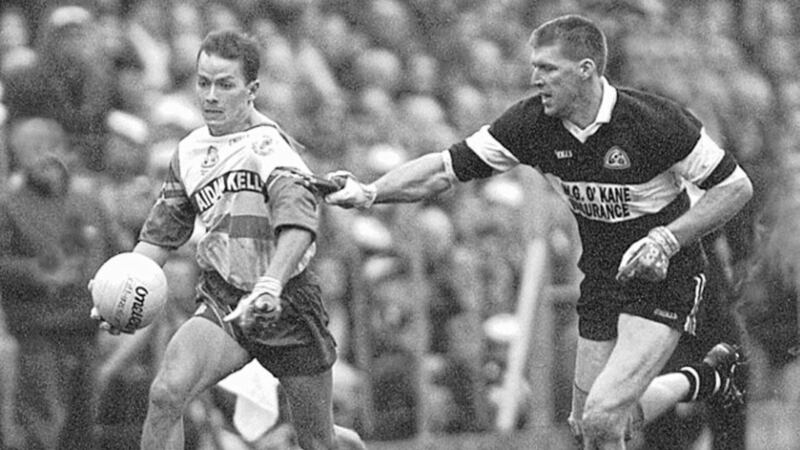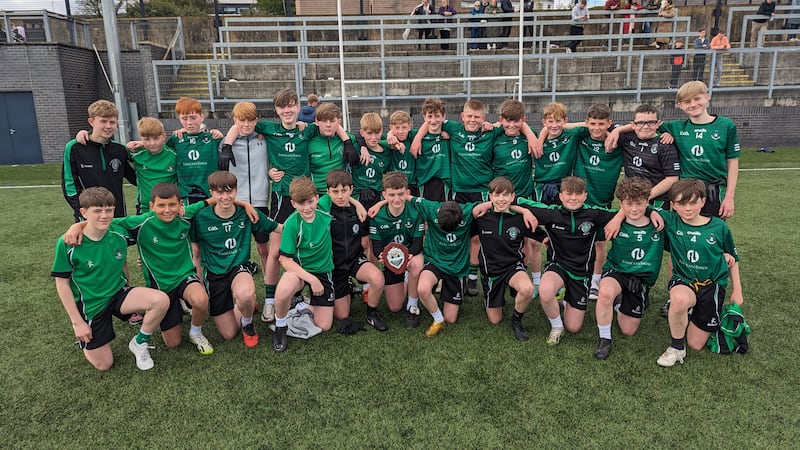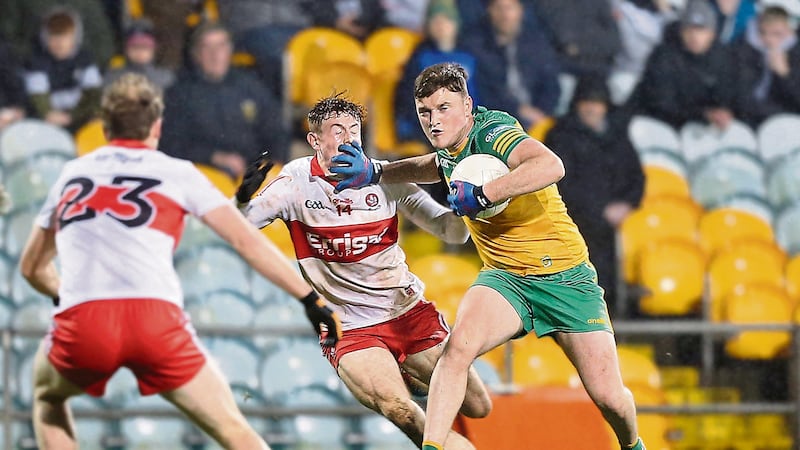IT was around about this time last year that I met Trevor Ringland.
Colleagues in the rugby world were organising a black tie dinner to celebrate the Queen’s University connection to the British & Irish Lions. Ringland would be one of those present at the launch.
I went with a mission and in a short two-minute walk to where the rest were congregated, a separate interview was loosely arranged.
A few days later, I met him at Established Coffee, with its high stools and masses of space and cold, grey flooring that would mark it as ‘alternative’, and ordinarily as a culchie-free zone.
We talked for the guts of two hours about sport and life and politics. Of it all, one tale that ended up left on the cutting room floor stuck in my mind.
On one weekend he played for Ireland against Wales. The packed Cardiff Arms Park bubbled and what followed was a typically frenetic encounter with the Celtic rivals.
A few days later on the Tuesday night, he was part of the Ballymena squad that headed to Bangor for a 6.30pm kick-off.
And while it seemed like a step down in stature, there were still a couple of thousand in Upritchard Park by the time the game kicked off.
Men like Ringland, who was capped 31 times by Ireland, were part of the attraction. Because of the presence of the very best players at the coalface, the club game drew massive crowds.
On another occasion, Newry RFC were opening a new clubhouse. He had relatives there and they asked him to play in an exhibition game. He agreed but Jimmy Davidson, the Ulster coach, told him he wasn’t to play.
Ringland’s response was: “I’m sorry, I am”. And play he did.
This was in the mid-80s, about a decade prior to the advent of professionalism in rugby, when club, province and country co-existed in harmony.
Since the move was made in 1995, the impact has been two-fold.
The glitz of a Grand Slam in 2009, three Six Nations titles in eight years, four Triple Crowns and European Cup successes for Ulster, Munster and Leinster paints a healthy picture for the game in Ireland.
But then you take in just about any game of club rugby on a Saturday afternoon and you see the crippling effect it’s had on the lower echelons. Turnstiles are not required to count the attendances. A pair of eyes and a spare 45 seconds would usually do it.
On Saturday, City of Derry played Rainey in an all-county, All-Ireland League derby at Judge’s Road. So far has the proud city club fallen that they were beaten 71-0 on their own home patch. The crowd tallied no more than 200, if it was even close to that.
In Limerick, Shannon once attracted 6,500 to their derby with Young Munster. Two decades on, attendances have fallen through the floor. They might only have 500 at some of their games.
Only the diehards still show up to watch their club now on a Saturday afternoon. For the casual observer, the interest died a long time ago.
People just stopped going to watch because the best players weren’t there any more.
Now they’re plucked in their early teenage years, dropped into provincial academies and the best ones are never seen again.
The end result is clubs that were once fielding nine and ten teams are down to two or three.
It’s gone the same in GAA. Half the lure of our club matches was seeing county team-mates going up against each other.
One of my youngest memories is of watching Anthony Tohill and Brian McGilligan square off in a club championship game between Swatragh and Dungiven over in Glenullin.
Every time the ball was kicked out, the crowd would inhale all the air out of the sky, waiting in wonder to see who’d climb highest.
Those battles were once 10-a-penny but in recent years, it’s gone the same way as the rugby.
The big names are strangers on their own home patch, more often hanging over the wire, their county manager having told them they can’t play.
It’s an obvious selfishness from managers but is it a selfishness on behalf of the players too? That they want to achieve everything they can at the highest level, and are prepared to abandon their clubs to do it?
Or is it just fear? That all they ever wanted to do growing up was make people proud, make themselves proud, by playing for their county, but that their manager now says if they play for their club too, they’ll be dropped.
I mention City of Derry because on the wing for them on Saturday was Mark Craig.
He and Kevin Johnston were cut mid-season from the Derry panel two years ago for having the balls to go against a manager and play for their club in a crucial relegation four-pointer. That it was against their neighbours Banagher made it all the more important.
John Giles was always a big man for players having the courage of their convictions, or moral courage. Those pair showed it in spades, but the net result was enough to put fear in the rest, in Derry and beyond.
We are in the situation now where players disappear to county training in November and, in some counties, are not seen hide nor hair of until July or August.
Take Armagh, where the county players might play two or three club league games all year, if even.
The idea of April being a month for the clubs is so upside down that it’s hard to know how we got ourselves here.
As one man suggested to me, why don’t the clubs release the players to inter-county setups for 10 days before a game, instead of the other way around?
Inter-county players may not be professional in terms of the wage packet but you would think that every one of them had signed a legally binding contract that forbade them from playing with their clubs.
They have every bit as much right to say they’re playing for their clubs as Trevor Ringland had to go to Newry that day. It just takes a bit of conviction.
What’s the worst that could happen?
Don’t let the window dressing fool you. The top end of inter-county football is in rude health and the provincial and All-Ireland club series' are attractive.
But the obsession with monetisation and profile for the inter-county game has left the club game, and ultimately the sport as a whole, on a road frighteningly similar to the one rugby has been down.
No amount of Grand Slams or even World Cups for an Ireland team packed with foreign-born players will hide the corpse of club rugby.
The GAA is a far way down that road, the key difference being that there are no contracts.
All it would take to stop it is a bit of courage.








